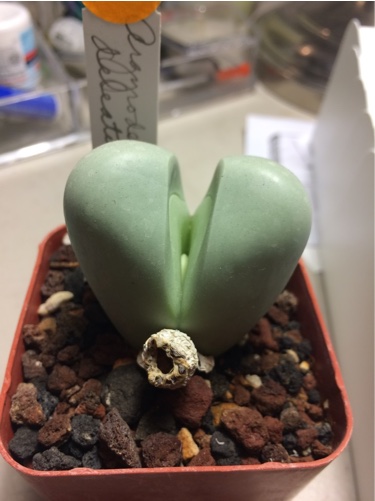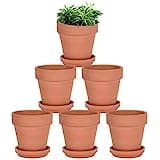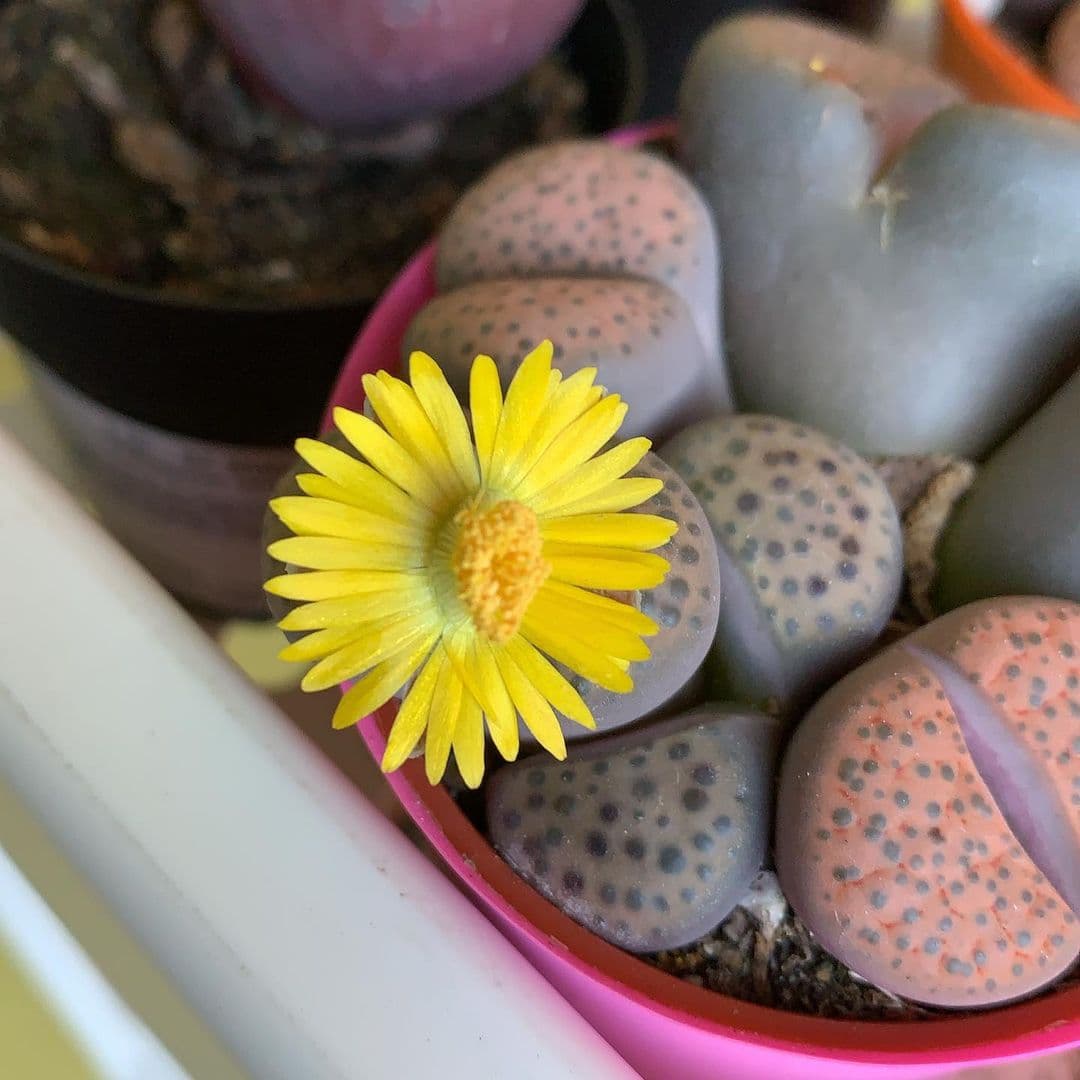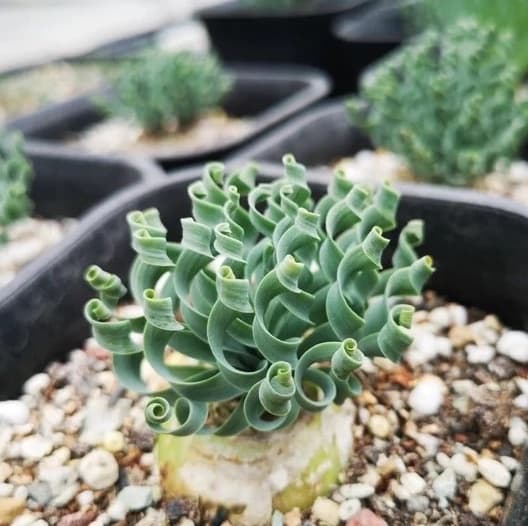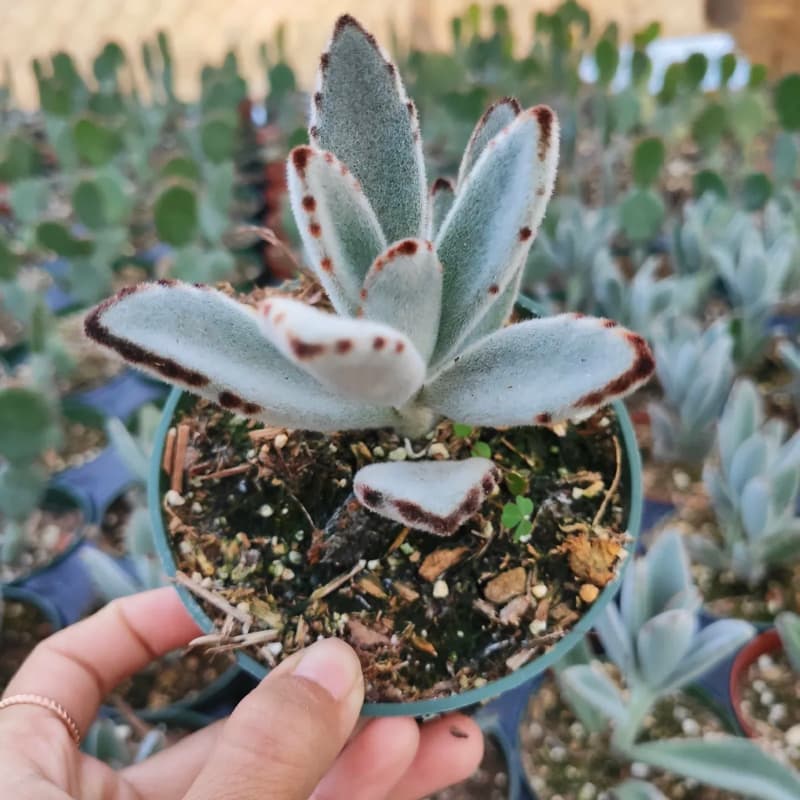Argyroderma Delaetii "Smurf Bums"
Posted by Grace on December 5, 2023

Quick Facts
- Native Habitat: Native to South Africa (Knersvlakte, Little Namaqualand), where it grows in rocky quartz fields.
- Family: Aizoaceae (ice plant family)
- Water: Low water requirements; prefers infrequent watering. Water minimally in summer, only when the plant starts shriveling.
- Sunlight: Requires full sun to partial shade.
- Soil: Well-draining soil mix, preferably sandy or gritty.
- Recommended temperature zone: USDA: 10b-12
Contents
- Why it is called Argyroderma delaetii?
- The Appearance of Argyroderma delaetii
- How to Care for Argyroderma delaetii
- Is Argyroderma delaetii Toxic to Pets?
- How to Propagate Argyroderma delaetii
- Where Can I Buy Argyroderma delaetii?
- FAQ
Why it is called Argyroderma delaetii?
Argyroderma delaetii derives its name from the Greek words "argyro", meaning silver, and "derma", meaning skin, in reference to the silvery sheen on its skin.
It also goes by nicknames like "Smurf Bums" and "Baby's Bottoms".
The Appearance of Argyroderma delaetii
Leaves
Argyroderma delaetii is a succulent plant characterized by pairs of thick, fleshy leaves that form a compact, flattened, or slightly spherical shape. The leaves have a silvery-green or bluish-green hue and are covered in tiny, glistening, wart-like structures, giving them a unique texture and appearance.
During the growth of new leaves in Argyroderma, it relies on extracting moisture from the older leaves, causing them to wrinkle.As for the small internal growth, there doesn't seem to be any observable progression or change in its development.
Flowers
During the blooming season, usually in late summer to early fall, Argyroderma delaetii may produce daisy-like flowers in various shades of pink, white, or yellow. These flowers emerge from the center of the plant and add to its ornamental value.
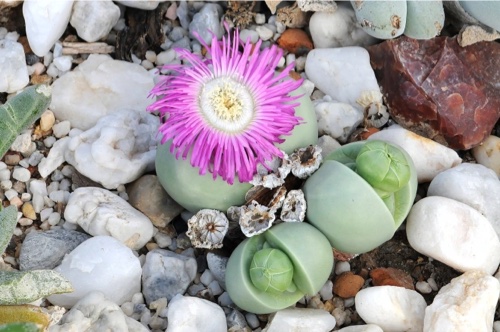
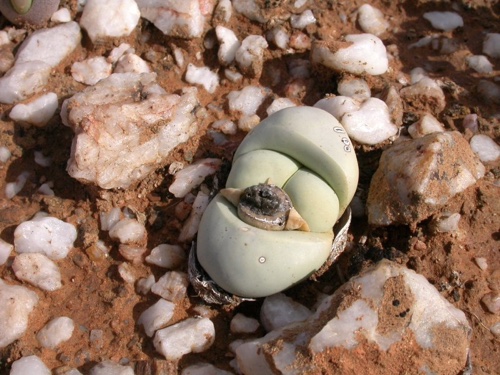
How to Care for Argyroderma delaetii
Light
Provide Argyroderma delaetii with plenty of sunlight, preferably full sun to partial shade. It thrives in bright, direct light conditions.
Watering
Water sparingly, allowing the soil to dry out completely between waterings. Overwatering can lead to root rot, so it's crucial to avoid excessive moisture.
Soil
Use a well-draining soil mix, such as cactus or succulent potting mix, with good aeration to prevent waterlogging.
Temperature
Argyroderma delaetii prefers warm temperatures and is not frost-tolerant. Protect it from temperatures below 50°F (10°C).
Humidity
This plant thrives in low humidity environments typical of its native arid regions.
Fertilizing
Feed sparingly with a diluted succulent fertilizer during the growing season (spring and summer) to support healthy growth.
Pruning
Minimal pruning is needed. Remove dried or dead leaves as needed to maintain its appearance.
Repotting
Repot infrequently, typically every few years, using a slightly larger pot when the plant outgrows its current container.
Dormancy
During winter, Argyroderma delaetii may enter a dormant phase, during which it requires less water and minimal feeding.
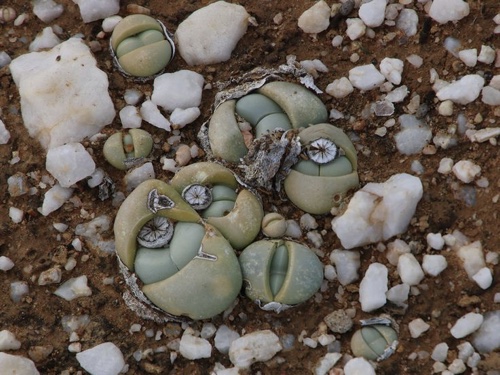
Pests and Diseases
It's generally resistant to pests and diseases but may occasionally attract mealybugs or suffer from root rot due to overwatering.
Need tools for succulent propagation and repotting? Here are my go-to tools: mini tool set (including syringe 💉, gloves 🧤, tweezers 🪤, dust blower 💨, tiny shovels 🛠️) and well-draining mix 🌱.Is Argyroderma delaetii Toxic to Pets?
Argyroderma delaetii is non-toxic to pets, making it a safe option to have around animals.
How to Propagate Argyroderma delaetii
Propagate through seeds or by carefully separating offsets that grow around the base of the plant. Allow separated offsets to callus before planting them in a well-draining potting mix.
Where Can I Buy Argyroderma delaetii?
You can find Argyroderma delaetii at specialized nurseries, succulent plant shops, or online stores that sell a variety of succulents.
Planet Desert sometimes offers live Argyroderma delaetii plants for sale.
FAQ
How often should I water Argyroderma delaetii?
Water sparingly, allowing the soil to dry out completely between waterings.
Can I keep Argyroderma delaetii indoors?
It can be grown indoors if provided with sufficient light, preferably near a sunny window.
What's the best soil mix for Argyroderma delaetii?
Use a well-draining cactus or succulent potting mix for optimal growth.
Why do the leaves of Argyroderma delaetii wrinkle?
During the growth of new leaves in Argyroderma, it relies on extracting moisture from the older leaves, causing them to wrinkle.As for the small internal growth, there doesn't seem to be any observable progression or change in its development.
